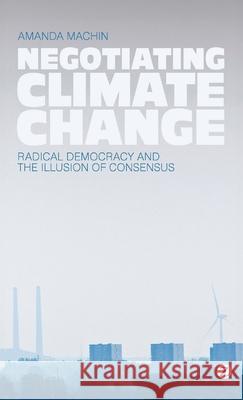Negotiating Climate Change: Radical Democracy and the Illusion of Consensus » książka
Negotiating Climate Change: Radical Democracy and the Illusion of Consensus
ISBN-13: 9781780323985 / Angielski / Twarda / 2013 / 176 str.
Negotiating Climate Change: Radical Democracy and the Illusion of Consensus
ISBN-13: 9781780323985 / Angielski / Twarda / 2013 / 176 str.
(netto: 417,35 VAT: 5%)
Najniższa cena z 30 dni: 421,40
ok. 30 dni roboczych.
Darmowa dostawa!
Climate change is the greatest challenge of the age and yet it is also one of the most disputed. Fierce disagreement still exists over the best way to tackle the problem and, indeed, even about whether it should be tackled at all. Viewed as problematic, however, such disagreement is often dismissed as irrational, irrelevant or unethical and is thus hidden behind an artifice of consensus.
This book provides a refreshing new perspective that decries the illusions of consensus in current climate change discourse. It suggests that there are four main accounts of the issue; technological, economic, ethical and deliberative democratic. Although each contributes important and different perspectives, all assume that agreement is both accessible and necessary. Considering each account in turn, the book suggests that none secure the political engagement necessary for collective action on the issue. Such political engagement, it is argued, arises through political disagreement. Using insights from radical democratic theory, political conflict is revealed to be something that doesn't hinder collective action but rather underpins the decisive action necessary to address the challenges of climate change. An important read for researchers, students, policy makers and anyone concerned about the current (lack of) politics of climate change.











